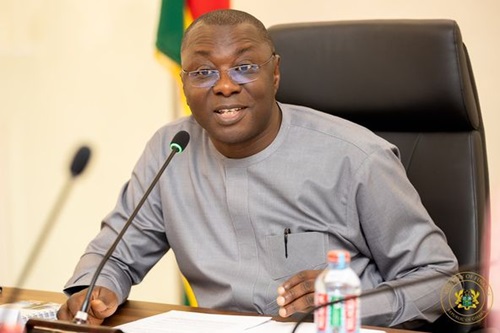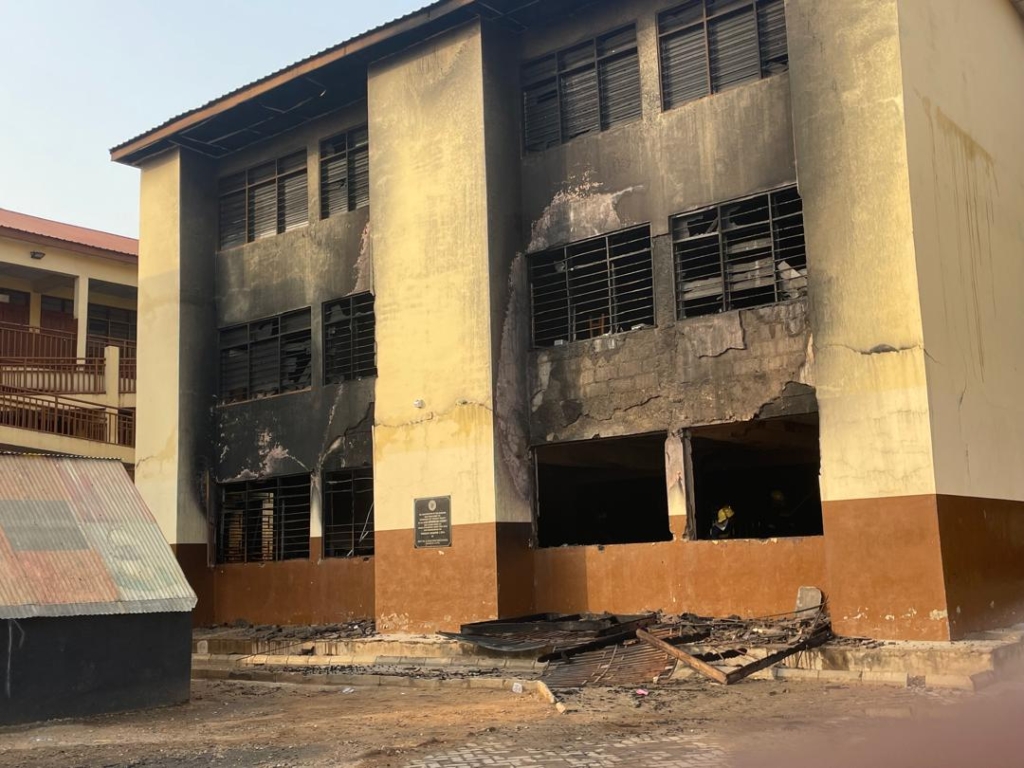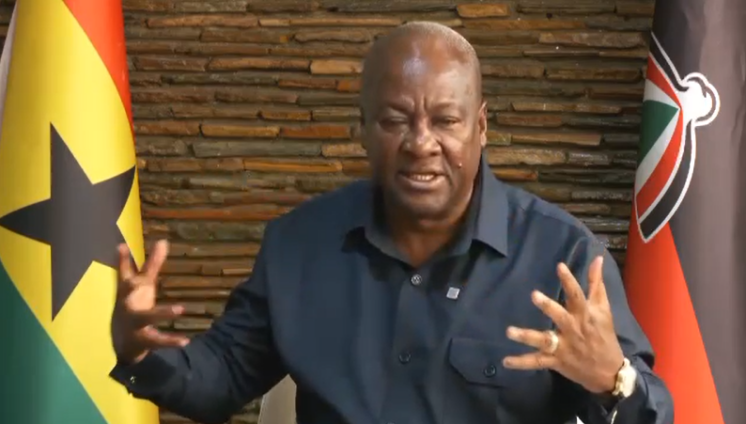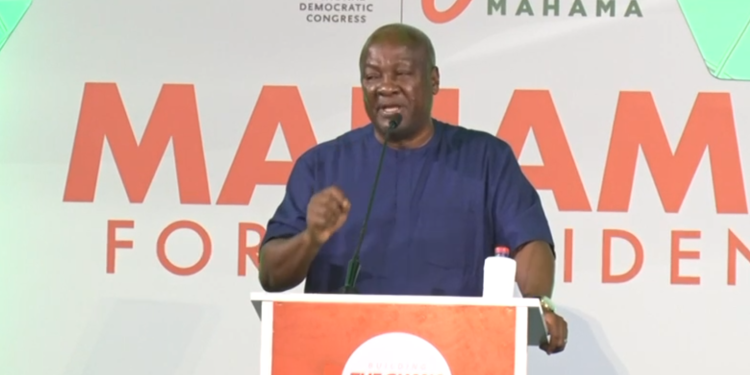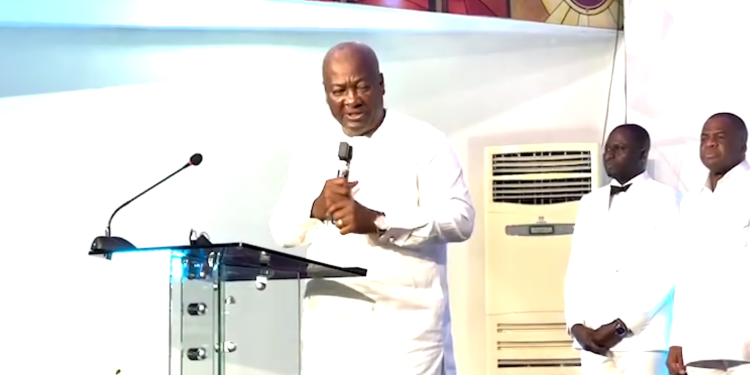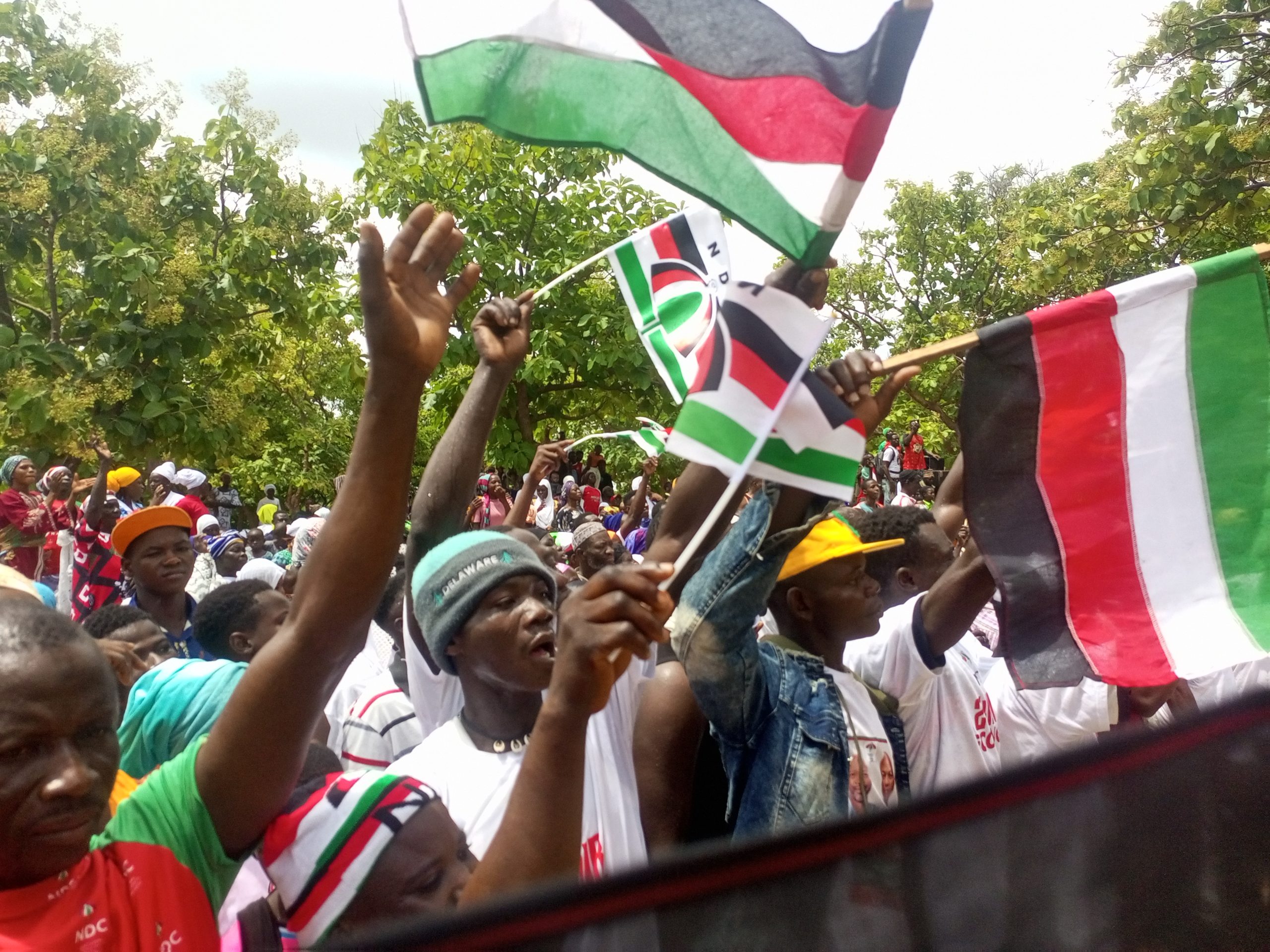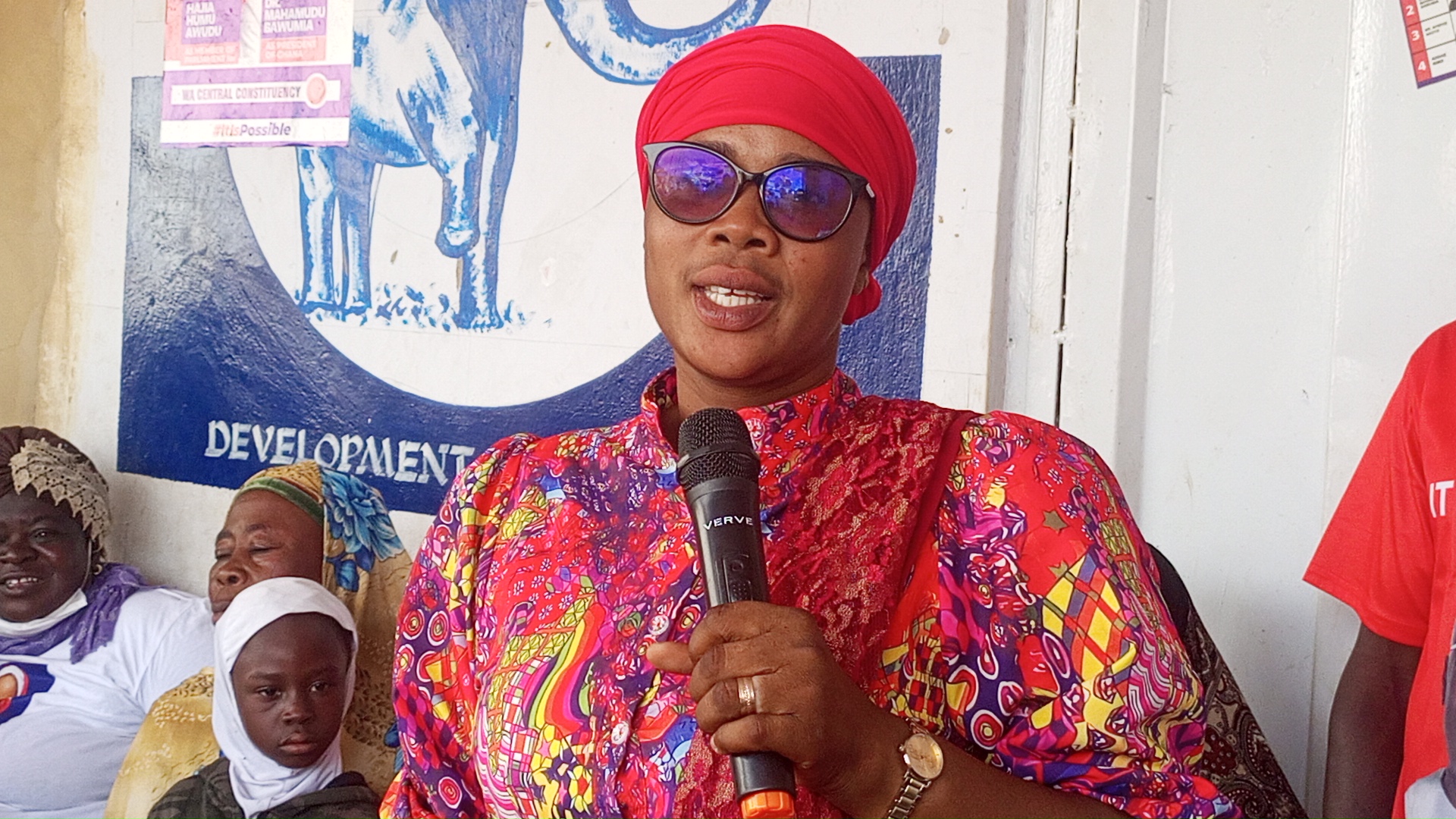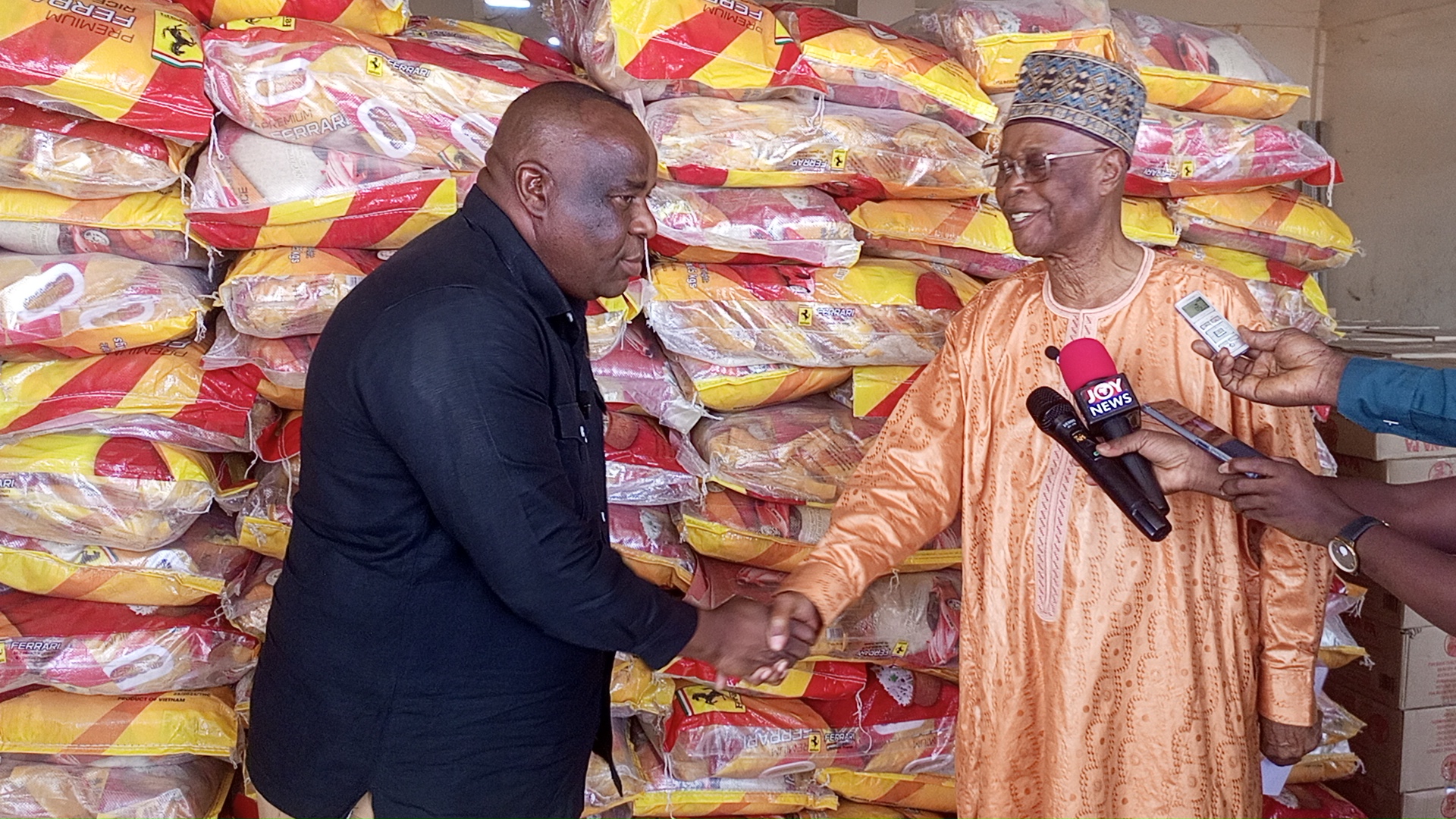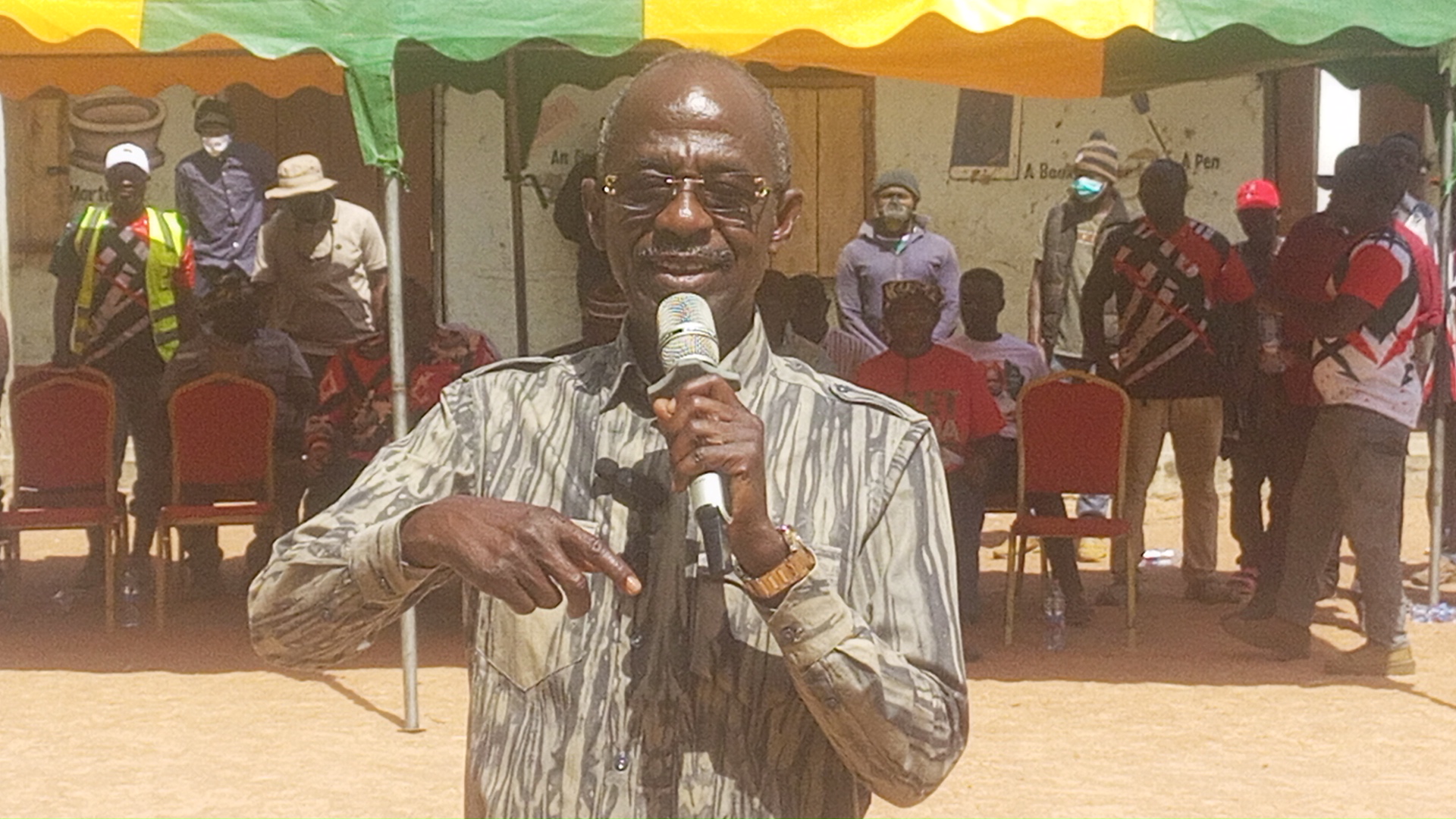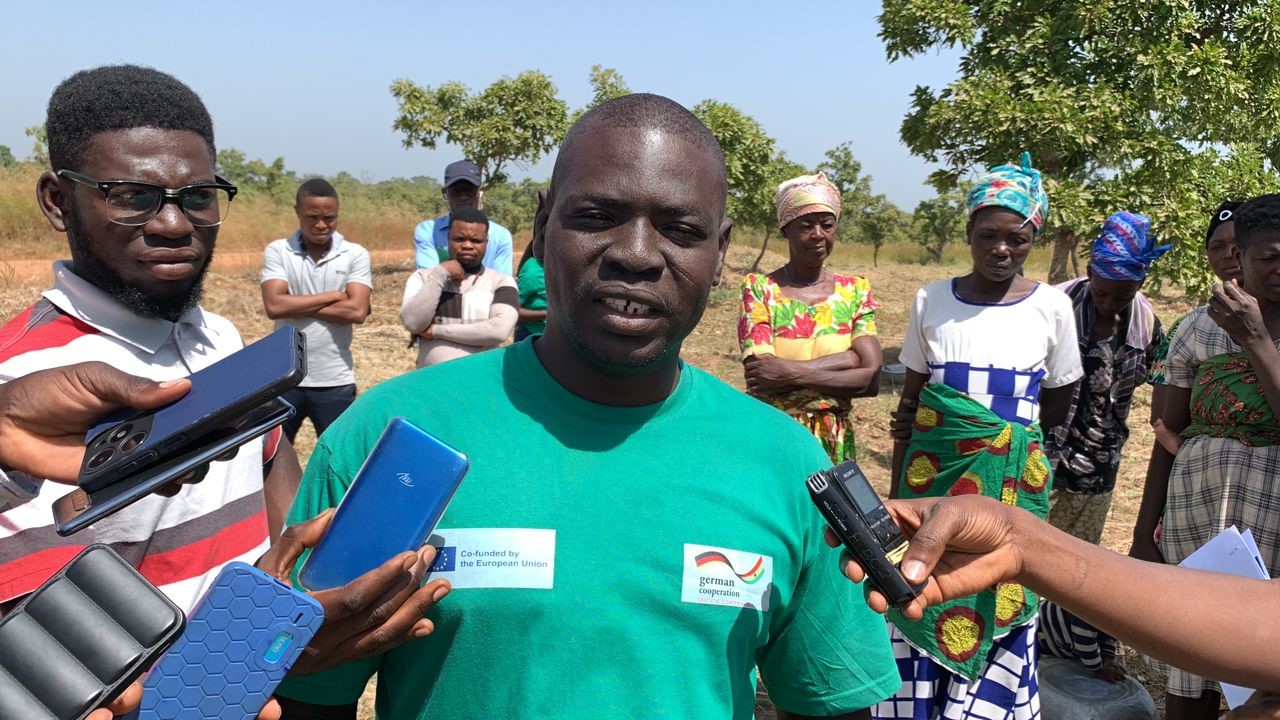UWR: Climate Resilience: farmers in Doung Community laud EU GAP’s intervention
Some farmers in Doung Community in the Nadowli/Kaleo district of the Upper West Region have lauded the positive impact of the EUGAP’s initiative of strengthening community climate resilience that is aimed at transforming and boosting agriculture in Northern Ghana whiles enhancing the livelihood of the people.
According to the farmers who partook in the Doung Community demonstration plot, the practical techniques and the skills learnt from the hands on leaning practices at the demonstration field has yielded so many results from cost effectiveness to mitigation of some environmental challenges and extreme weather conditions.
Madam Chipou Anastasia, a farmer says “we have learnt how to preserve the land by not setting the farm on fire after harvesting, we now get to understand that the sediments of the harvested crops and the grasses in the farmland can be use to cover the top surface of the land, when they decomposed they turn into fertilizer for the land that increases your yield”.
she adds that “we were again taught how to practice mix cropping so that with just a plot of land you can cultivate two or more crops from same plot of land, I never thought of that but in the demonstration farm, we cultivated both maize and groundnut at the same time so I will be replicating same practice in my farm”.
For his part, Karima Vitalis, Agric Extension Officer of the Sombo Operational Area who was spotted with the local farmers at the Duong community demonstration farm explains that, the devastating nature of the land due to climate change has necessitated the need for new methods of farming to adopted and practiced, hence the need for conservation agriculture to be practiced.
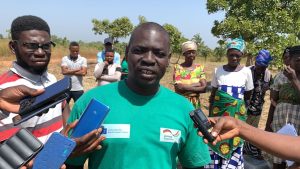
He says,conservations agriculture is one of the best farming practices that needs to be adopted by farmers in order to curtail the adverse effect of climate change whiles maintaining the soil cover and minimizing disturbances of the soil.
“Conservation Agriculture (CA) is one of the perfect practice we have to adapt, so this demonstration purposely is to teach the farmers the CA practices. CA has three principles, the first one is for us to have zero tillage or minimum tillage thus minimizing the disturbances of the soil, so we have sprayed and the second practice is the total soil cover and as you can see we have to cover the soil” Mr. Vitalis noted.
The Sombo Operational Area Extension officer furthered that ” the total soil cover is to enrich the soil so that we will minimize the usage of the fertilizer, once the soil fertility is increased it will reduced your cost of production, crop diversification is one, in this demo farm as you can see we have maize and groundnut, the maize is cereal and the groundnuts is leguminous crop and so once we are doing crop diversification, the cereals are taking nutrients from the soil and the leguminous are adding nutrients to the soil”.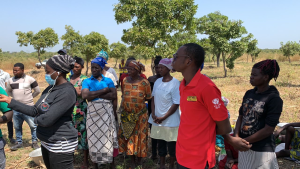
The Doung and Lawra communities in Ghana’s Upper West Region showcase the transformative impact of the European Union Ghana Agriculture Programme (EU GAP), a key initiative to boost agriculture and enhance livelihoods in Northern Ghana through a focus on climate-resilient farming and community-centered planning, this came to fruition as a result of European Union Ghana Agriculture Programmes (EUGAP)’s support for local communities in adapting to environmental challenges, extreme weather, and resource limitations.
The community demonstration plots form a central part of the EU GAPs efforts towards local farmers in Doung and surrounding areas in getting to learn practical techniques for climate-smart agriculture.
This is achieved by engaging in hands-on learning, and with that farmers not only improve productivity but also strengthen their ability to withstand climate impacts. Annually, 200 demonstration plots are set up to reach smallholder farmers who rely on agriculture for their sustenance.
EU GAP, in partnership with Training and Extension for Conservation Agriculture in the Savannahs (TECAS), also facilitates access to mechanized tools, including ripping services, to support new, sustainable farming practices. To date, this initiative has helped farmers cultivate over 1,126 acres with modern, conservation-focused methods.
In addition to technical support, EU GAP empowers communities to create and implement Community Action Plans (CAPs), addressing each community’s unique needs. CAPs foster inclusive decision-making in land use and prioritize sustainability, promoting long-term environmental stewardship.
The programme also drives innovation in agriculture through the Youth in Agribusiness (YiAB) initiative and the implementation of solar-powered irrigation systems. YiAB equips young people with essential skills in business management, digital marketing, and sustainable practices, positioning them for success in the agribusiness sector. A notable success is Emmanuel Boro Bayi, whose enterprise, “Apex Peanuts,” has expanded its network, sales, and staff following his participation in YiAB.
The impactful projects, of the EU GAP got funded by the European Union and German development cooperation, and implemented by the Deutsche Gesellschaft für Internationale Zusammenarbeit (GIZ) GmbH in collaboration with the Ministry of Food and Agriculture (MoFA). EU GAP demonstrates a scalable approach to strengthening Ghana’s agricultural sector in the face of global environmental challenges.
Meanwhile, Community members of the Doung community also had an engagement with EU GAP project implementers to validate some developmental needs of the people that were previously outlined to court the attention of the project to get them addressed.
Amongst them, the community members appealed to EU GAP to consider working on their dam and upgrade it with irrigable facilities to help curtail the increasing numbers of rural-urban migration during the dry season.
The community members further expressed worry over their inability to access tractor services timely stressing that the late access to such services leads to delay in ploughing their farms timely but was quick to add that the new farming techniques such as minimal tillage amongtst others they have learnt will ease their pressure of having to farm late due to lack of tractor services.
However, Mr. Hudu Abu, Upper West Regional Director of Agriculture , also the Operational Area Coordinator of the Project during a media engagement on the 6th of November, 2024 in Wa to bring the media up to speed some activities and projects undertaken by the EU GAP in the region, underscored the significance of the EU GAP projects in the operational area especially the 11 districts of the Upper West region explaining that, the EUGAP comprises 3 pillars thus Resilience Against Climate Change (REACH), Market Oriented Agriculture Programme in North-West Ghana (MOAP-NW) and Productive Investment Programmes (PIP) in the Northern Savannah Ecological Zone.

He seized the opportunity and expressed gratitude to EU GAP indicating that, the livelihood of local farmers in the region have been improved as a result of the EU GAPs’ intervention.
The projects are co-funded by the European Union (EU) and German Federal Ministry for Economic Cooperation and Development (BMZ) and implemented by Deutsche Gesellschaft für Internationale Zusammenarbeit (GIZ) GmbH in collaboration with the Ministry of Food and Agriculture (MoFA).
Pronet North an Non Governmental Organization in Northern Ghana has been very active in mobilizing the local farmers and teaching them how to raise capital through their mini local savings in order to be able to cultivate their farms.
The NGO also played role in mobilizing the farmers to practice the learning on hands Conservation Agricultural practices through the demontration farms in the Upper West Region.
By: Saeed Fatawu|W93.5FM|myghanawatch.com|



